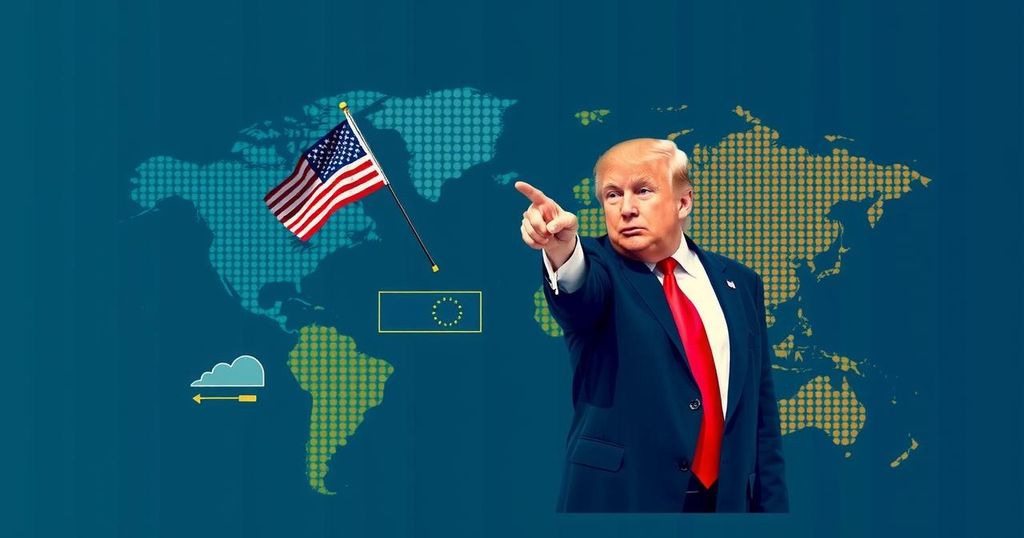Climate change
Global news
ASIA, AZERBAIJAN, BAKU, CENTRE FOR EUROPEAN REFORM, CHINA, CLIMATE CHANGE, ELISA, EU, EUROPE, EUROPEAN UNION, GEOPOLITICS, GERMANY, GLORIA DICKIE, GLORIA DICKIE WASHINGTON, INTERNATIONAL CLIMATE ACTION, INTERNATIONAL RELATIONS, KAMAL, KATE ABNETT, MEXICO, NORTH AMERICA, PARIS AGREEMENT, S. SENATE, U. N
Fatima Khan
0 Comments
Trump’s Victory Challenges Global Climate Initiatives Ahead of COP29
Donald Trump’s recent election win raises concerns for the COP29 climate summit, as intentions to withdraw from climate agreements pose challenges for international climate negotiations. With the EU and China expected to lead efforts in climate finance, local U.S. initiatives indicate continued commitment to climate goals despite federal policy changes.
Donald Trump’s recent election victory signals a potential setback for global climate negotiations leading up to the COP29 summit scheduled for November 11-22 in Baku, Azerbaijan. His administration’s intention to withdraw from the 2015 Paris Agreement and possibly the UN Framework Convention on Climate Change raises concerns among international negotiators. The absence of U.S. support may hinder progress in reaching a new global finance target crucial for climate action, emphasizing the necessity for Europe and China to assume greater leadership roles in these discussions. Amid these challenges, experts believe that the transition to renewable energy will persist, regardless of federal policy shifts. With substantial investments flowing toward clean energy technologies, key stakeholders stress the importance of continued collaboration among the world’s major emitters. Despite the United States’ changing stance, initiatives led by cities and states signal a commitment to uphold climate goals in the face of national-level setbacks. The future climate alliance between the European Union and China will be critical in reaffirming global efforts against climate change.
The COP29 climate summit represents a crucial international gathering aimed at addressing climate change, adapting strategies, and enhancing financial commitments from developed nations to aid those most affected. The recent U.S. election introduced uncertainties regarding American participation and support for global climate agreements. Historically, the U.S., China, and the European Union rank as the largest greenhouse gas emitters, making their commitment to climate action vital for success at global summits. The potential for significant policy reversals under Trump’s administration adds to the complex dynamics of international negotiations as global temperatures continue to rise.
In summary, Donald Trump’s re-election poses significant challenges to international climate efforts, particularly concerning U.S. participation in established agreements. The responsibility for driving progress may now fall more heavily on European and Chinese leaders. Ultimately, ongoing investments and initiatives at local levels suggest a persistent commitment to combating climate change, despite shifts in federal policy. Future collaborations between major emitters will be essential to maintain momentum in the fight against global warming.
Original Source: www.swissinfo.ch




Post Comment